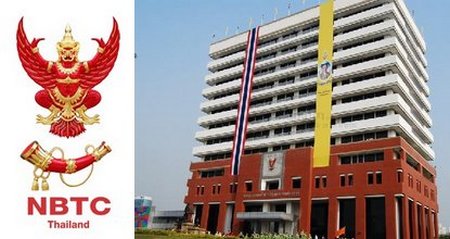| Year | 2015-01-30 |
|---|
‘Unfair advantage’for military, agencies Legal and industry analysts have strongly criticised the recent draft bill covering the National Broadcasting and Telecommunications Commission (NBTC).
They claim it favours the military and state agencies in frequency allocation and management.

The draft bill is one of 10 recently proposed by the Information and Communication Technology Ministry.
The analysts also oppose the use of the beauty contest method to allocate frequencies, saying it lacks transparency and allows investors with strong political connections to obtain frequencies at low cost.
“The draft NBTC bill will not solve existing problems, particularly that of budget transparency,” said Somkiat Tangkitvanich, president of the Thailand Development Research Institute.
He was speaking Thursday at a public forum entitled “Frequency Resources and Telecom Direction under the Digital Economy Laws” hosted by the NBTC.
Mr Somkiatagreed with the draft bill dividing the roles between the National Digital Economy Committee (NDEC), which would set national policy, and the NBTC, which would still play a regulatory role.
However, he expressed concern that the bill would allow the NDEC to interfere in allocating frequencies or reserve them for specific agencies.
“This creates a risk of private companies with political connections obtaining frequencies at low cost, leading to a ‘pseudo-concession’,” Mr Somkiat said.
He emphasised that the auction method was the most practical. A total of 93 billion baht was generated from auctions for third-generation and digital TV licences.
Mr Somkiat pointed out the US had abandoned the beauty contest method, as it was outdated and lacked transparency.
Prof Worapoj Wongkitrungruang, a member of the non-governmental organisation NBTC Policy Watch, said the draft NBTC bill would not only allow the NDEC to intervene in frequency management but also have the power toextend the return of frequencies, particularly in the case of state telecoms.
Most frequencies operated by state enterprises have been underused, he said.
“This will also distort new frequency allocations of 800,850,900,2100 and 2300 megahertz,” Prof Worapoj said.
Prof Supot Tiarawut, a telecommunications expert at Chulalongkorn University, said the new bill would allow the NDEC to have power by passing the Public-Private Partnerships Act.
Saree Ongsomwang, a member of the National Reform Council, said all the new bills lacked consumer protection elements but particularly the draft NBTC bill. It eliminates the NBTC’s mandate to resolve consumer complaints within 15 days.
“The draft should make impeachment of NBTC members easier. Currently, the NBTC is bad in terms of consumer protection,” she said.
Surangkana Wayuparb, chief executive of the Electronic Transactions Development Agency, said the Council of State was likely to change its protocol by allowing public hearings in its first revision under its consideration process.
—————-
First Published: Bangkok Post, January 30, 2015
